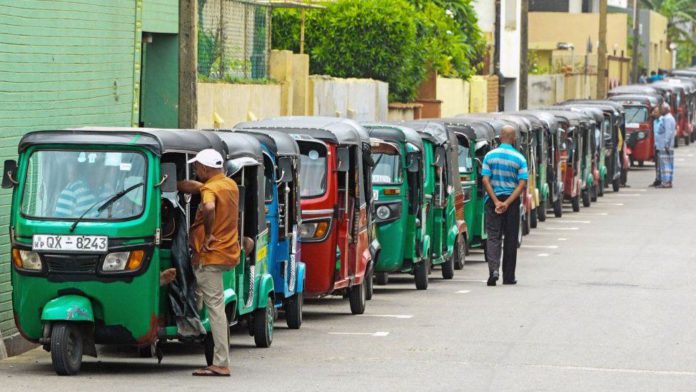Sri Lanka’s energy minister has issued a stark warning over the country’s fuel stocks as it faces its worst economic crisis in more than 70 years.
On Sunday, Kanchana Wijesekera said the nation only had enough petrol left for less than a day under regular demand.
He also said its next petrol shipment was not due for more than two weeks.
Last week, Sri Lanka suspended sales of petrol and diesel for non-essential vehicles as it struggles to pay for imports like fuel, food and medicines.
ALSO READ:
Mr Wijesekera told reporters that the country had 12,774 tonnes of diesel and 4,061 tonnes of petrol left in its reserves.
“The next petrol shipment is expected between the 22nd and 23rd [of July],” he added.
A shipment of diesel is expected to arrive at the weekend, however Mr Wijesekera warned that the country does not have enough money to pay for planned fuel and crude oil imports.
He said Sri Lanka’s central bank could only supply $125m for fuel purchases, far less than the $587m needed for its scheduled shipments.
Mr Wijesekera added that the country owed $800m to seven suppliers for purchases it made earlier this year.
It came after Sri Lanka banned sales of fuel for private vehicles until next week.
Experts believe it is the first country to take the drastic step of halting sales of petrol to ordinary people since the 1970s oil crisis, when fuel was rationed in the US and Europe.
The island nation of 22 million people is facing its worse economic crisis since gaining independence from the UK in 1948 as it lacks enough foreign currency to pay for imports of essential goods.
Acute shortages of fuel, food and medicines have helped to push up the cost of living to record highs in the country, where many people rely on motor vehicles for their livelihoods.
Last Thursday, an International Monetary Fund team concluded a fresh round of talks with Sri Lanka over a $3bn (£2.5bn) bailout deal.
While no agreement has been reached yet, the team said in a statement that it had made “significant progress on defining a macroeconomic and structural policy package”.
It added that it had “witnessed some of the hardships currently faced by the Sri Lankan people, especially the poor and vulnerable who are affected disproportionately by the crisis”.
The cash-strapped country has also sent officials to the major energy producers Russia and Qatar in a bid to secure cheap oil supplies.

